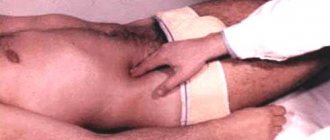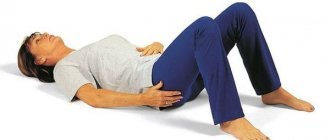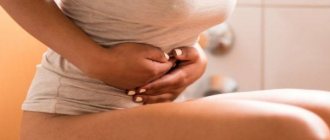Normally, a person can lose up to one hundred hairs per day, so everyone should not worry about the possible occurrence of alopecia. In the same case, if you begin to notice that hair is falling out regularly and in large quantities, this is already a cause for alarm. We recommend that if you have any suspicions about diseases associated with hair loss, you immediately consult a trichologist, who will prescribe you a set of diagnostic measures and, if the source of the problem is detected, prescribe the correct treatment.
In most cases, baldness in men is not associated with pathological processes in the body. This may be triggered by a genetic factor or so-called androgenetic alopecia, caused by the reaction of hair follicles to a derivative of the male sex hormone - dihydrotestosterone.
However, baldness is also possible due to the presence of a number of diseases that cause hair loss. In this case, alopecia does not act as the root cause of the problem, but, on the contrary, is a consequence of one or another pathological process. In this case, in fact, it is necessary to treat not specifically baldness, but to eliminate the internal problem directly.
Classic alopecia. Androgenetic (male) and diffuse (female) alopecia
These are the two most common situations in medical practice. The cause of androgenetic alopecia (AGA) is most often genetics, followed by provoking factors: stress, lack of microelements, vitamins, trichotoxic drugs, etc. Therefore, more often we call AGA not a disease, but a pathological condition.
What is characteristic of the female type of hair loss is that, in addition to genetics, hormonal problems (usually sex hormones) are in second place, and in this case, alopecia can often occur after various diseases.
Now let's look at the effect of provoking factors in more detail.
Symptoms
Normally, a person loses from 25 to 100 hairs per day. If more hair falls out, it is easy to notice when combing and washing your hair. The hair becomes thinner, the parting becomes wider, the frontal hairline shifts, and bald patches appear.
The first noticeable signs of androgenetic alopecia in men are a backward displacement of the frontal hairline (receding hairline) and baldness on the crown of the head; in women, thinning of the hair on the crown, thinning of the hair in the parting area.
The main symptoms of alopecia areata: hair loss in patches in any area, the degree of loss varies and can be total. Hair loss is usually not accompanied by skin symptoms (pain, itching, flaking).
Hormonal factors
A problem with any endocrine gland can lead to pathological hair loss. Most often this is the thyroid gland (hypo- or hyperfunction, which is very typical for our country, since we are in an endemic zone where there is a lack of iodine), ovaries (the most common cause is polycystic ovary syndrome, disturbances in the production of estradiol, dihydrotestosterone), as well as the adrenal glands (produce cortisol) and the pituitary gland (prolactin). Hair loss often occurs with diabetes, mainly type 1.
In any of these situations, the normal balance of hormones is disrupted, which leads to increased hair loss, impaired restoration, or deterioration of the structure of the hair shaft. In such cases, it is necessary to carry out complex therapy, treatment simultaneously with a trichologist and an endocrinologist, since only normalization of hormonal levels can stop hair loss, but not improve hair growth and structure. This is one of the main mistakes of patients who think that normalizing hormone levels is enough.
Dysbacteriosis as the main cause of deterioration of hair condition
The condition of our hair often directly depends on the condition of the intestinal microflora. Dysbacteriosis is a disorder of the intestinal microflora, since the human intestine is populated by various microorganisms. Beneficial bacteria make up their main part and protect the intestines from pathogenic bacteria and resist their penetration into the blood. And with dysbiosis, beneficial microbes die, the protective barrier weakens, and toxins penetrate the systemic bloodstream. Internal intoxication affects the hair papillae, the hair weakens, thins, becomes dull, brittle, quickly becomes oily and begins to fall out. So the intestinal microflora affects the condition of the whole organism, including the skin and hair.
mulsan.ru
The main causes of dysbiosis:
- diseases associated with digestion (pancreatitis, cholecystitis, liver disease, gastritis, peptic ulcer);
- intestinal diseases - salmonellosis, dysentery;
- taking antibiotics always provokes dysbacteriosis, since they destroy the intestinal microflora;
- a sharp decrease in immunity due to illness;
- strict diets and stressful situations.
Dysbacteriosis provokes a lack of B vitamins, because they are formed in the intestines under the influence of bacteria, as a result of which the condition of the hair worsens.
In case of dysbacteriosis, the doctor prescribes appropriate treatment (comprehensive intestinal cleansing, restoration of intestinal microflora, saturation of the body with vitamins, minerals and trace elements) and corrects nutrition. After a course of probiotics, hair vitamins are added. Also, do not forget about external measures to strengthen hair (masks, tinctures, tonics, serums).
Worms and hair loss
Parasites can live not only in the intestines, but also in any human organ. They injure the organs in which they settle and move. In the intestines, they eat food that is ready for digestion, absorb vitamins, minerals and all the useful substances that our body needs daily, and some parasites feed only on blood.
There are several types of worms that cause hair loss. But even the simplest worms take away from us the beneficial substances that the body needs, so the vitamins and microelements that remain are sent to more important organs, and they reach the hair last. Which results in exhaustion, brittleness and hair loss. Also, toxins from the activity of parasites poison the body.
The bacteria Helicobacter pylori, living in the stomach, also provoke hair loss. The presence of Helicobacter leads to disruption of the digestive tract, poor absorption of vitamins, especially group B, and they are the most important vitamins for health and hair growth.
To prevent worms you need:
- always wash your hands before eating;
- drink only clean water that you are sure of;
- do not eat meat or fish that have not been properly cooked;
- Give your pets anthelmintic medications periodically.
Tests are taken for the presence of worms and drug treatment is prescribed, which can only be prescribed by a doctor.
Hair loss due to pancreatitis and liver diseases
Hair loss is often accompanied by diseases of the gallbladder (cholecystitis), pancreatitis and liver.
Hair growth and its appearance largely depend on the condition of its papilla, because it is this that serves as the source of nutrition for the entire hair. The health of the hair is determined by the activity of the sebaceous and sweat glands, as they affect the elasticity and softness of the hair shaft. The function of the papillae and glands is regulated mainly by the endocrine and nervous systems. When the work of these systems is disrupted and they are depleted, in addition, the body experiences infectious and food intoxication - as happens with liver diseases - the hair papillae are affected, not receiving sufficient nutrition, the hair shafts become brittle and dry, dandruff forms, which eventually leads to hair loss hair.
If your hair is too oily, be sure to check the condition of your liver.
With pancreatitis, the process of absorption of nutrients by our body is disrupted. Insufficient absorption and content of vitamins in the body determines the need to enrich the diet with them. It is especially important to introduce increased amounts of vitamins A, C, B1, B2, B6, B12.
Toxic factors
These include the effects of anesthesia during surgical interventions, taking a number of trichotoxic drugs (retinoid group, antibiotics, etc.). A separate risk group is cancer patients undergoing radiation or chemotherapy treatment. It should be noted that in these situations, in most cases, the hair recovers on its own after the cessation of exposure. The criteria for this are the duration of hair loss of no more than 2-3 weeks, slight loss of volume, rapid recovery, hair growth. If this does not happen, then it is better to contact a trichologist.
Saving hair with intestinal treatment
First of all, contact a specialist such as a gastroenterologist. Regardless of how much your intestines are bothering you, and what diagnosis you have been given. You may have to go to an endocrinologist and dermatologist, since the cause of intestinal problems is not always obvious and easily solvable.
Only after solving the intestinal problem should you contact a trichologist. By eliminating all internal causes of hair loss, it will be easier to restore the beauty and thickness of your hair.
After talking with doctors, if there are no contraindications, you can use traditional medicine, both externally for hair and internally for intestinal microflora. There are many simple and complex recipes, starting with taking chamomile infusion and ending with entire courses of taking herbs and remedies to combat hair loss or intestinal problems.
Hair problems and digestive tract dysfunction may not be related. But to the question of whether hair can fall out due to intestinal problems, the unequivocal answer is yes. Almost always, the condition of our skin, nails and hair reflects how much we care about our health. Without the normal functioning of internal organs and digestion, there will never be a fresh appearance and strong hair. Remember this and take care of yourself.
Atypical types of hair loss
The so-called idiopathic alopecia (that is, with an unknown cause) includes focal forms. They are characterized by the formation of areas devoid of hair. There are single, multiple, subtotal, total and universal forms of alopecia. In a one-time, first case, the hairline often recovers on its own without treatment within a year (with the exception of the universal form).
The cicatricial form (Broca's pseudopelade) is also known. In this case, a transplant is indicated; the treatment is ineffective, since the root is replaced by connective tissue, that is, in fact, there is nothing to treat.
Stress and emotional stress
As mentioned above, a negative external background has a noticeable detrimental effect on a person’s mental state. As a result, there is an active production of a stress marker - cortisol, which increases the circulation of testosterone. However, there are cases when it is problematic or impossible to determine what is causing hair loss in women, since tests, heredity and nutrition are normal. In such a situation, you will need to consult a psychologist; in psychiatry there is such a pathology as trichotillomania.
This disease is manifested by unconscious pulling out of the hairy component of the body, which occurs after neuropsychic disorders. Due to emotional lability, it is the representatives of the fair half of humanity who are more susceptible to these problems. It can occur due to chronic anxiety, low self-esteem or frequent depression.
Post-COVID hair loss
Recently, the number of patients complaining of very severe hair loss has increased. Very characteristic signs are a flurry of sudden hair loss, which occurs all at once, in one day, and rapid (2-4 weeks) loss of volume 2-3 months after suffering from COVID. Initially, doctors believed that this was a reaction to aggressive therapy, but then patients began to come in who suffered from the disease in a mild form or were completely on their feet. Conclusion: the virus itself has a trichotoxic effect. Treatment with a trichologist is required if hair loss lasts more than 1–2 weeks. The prognosis is usually positive.
Diagnostics
While alopecia can be successfully treated in many cases, the key to effectively treating hair loss is identifying the cause and making an accurate diagnosis.
Diagnosis of alopecia includes a medical history, examination of the scalp and other areas of the skin, a hair loss test, examination of the scalp and hair under magnification (using a trichoscope), and in some cases a scalp biopsy. Laboratory tests help rule out or identify diseases that may cause hair loss.
In the future, depending on the results of diagnostic studies, a dermatologist (or trichologist) may recommend that the patient consult a therapist, endocrinologist, gynecologist, rheumatologist and other specialists.
Gastritis and hair
Hair loss, attacks of abdominal pain, digestive problems can be symptoms of diseases such as stomach ulcers, cholelithiasis, pancreatitis, dysbacteriosis, irritable bowel syndrome, chronic gastritis. Therefore, it is very important to contact a qualified specialist in a timely manner.
If the digestion and assimilation of proteins is impaired, this can negatively affect appearance, immune function, and cellular renewal. If there is also a problem with the absorption of vitamins and minerals, problems with hair and nail growth, pallor, and unhealthy complexion may occur.
Often, after rapid weight loss, women notice a deterioration in the condition of their hair. Most often this occurs due to problems with the stomach, for example, with atrophic gastritis or infection with the microbe Helicobacter pylori. In the absence of proper treatment, the situation may worsen, even leading to alopecia.
Very often, hair responds to internal problems, chronic diseases such as gastritis.
Oily hair with gastritis
Very often, hair responds to internal problems and chronic diseases. People who have gastritis, ulcers, as well as intestinal disorders and dysbacteriosis often suffer from increased oily hair. Thus, you will be able to get rid of oiliness when you remove the main cause of the appearance of excessive amounts of sebum.
If you often eat sweets, starchy foods, or fatty foods, your hair will immediately respond to this. All this produces a huge amount of sebum, which is associated with disruption of the gastrointestinal tract.
Is it possible to dye your hair if you have hair loss due to gastritis?
With progressive alopecia areata, painting is strictly not recommended, regardless of what will be used for this. Hair is already in a weakened state and additional stress can have a detrimental effect on your hairstyle. In other cases, provided there is no damage or irritation to the scalp, you can apply makeup.
Only for this purpose it is recommended to use modern ammonia-free coloring compositions containing useful substances and microelements. Such paints definitely won’t do any harm, at least not significantly. The only contraindication here is hair lightening, for which mixtures with a significant concentration of substances harmful to hair are still used.
Hair treatment for gastritis
If you have problems with the gastrointestinal tract and intense hair loss, you will need to consult a gastroenterologist and, if necessary, appropriate treatment.
Only after eliminating diseases of the intestines and stomach, the trichologist prescribes treatment, individually selecting medications. A course of taking a vitamin-mineral complex is required, which includes vitamins B, A, E, C, as well as iron, selenium, zinc, and magnesium.
For treatment to be successful, you need to adjust your diet and lifestyle. You should increase your consumption of foods containing sufficient amounts of plant and animal proteins, vegetables and fruits, but coffee and alcoholic drinks should be limited, or better yet completely eliminated. It will help you quickly restore your hair and quit smoking. Everything is very simply explained - when smoking, the capillaries narrow, blood flow decreases, and alopecia develops.











